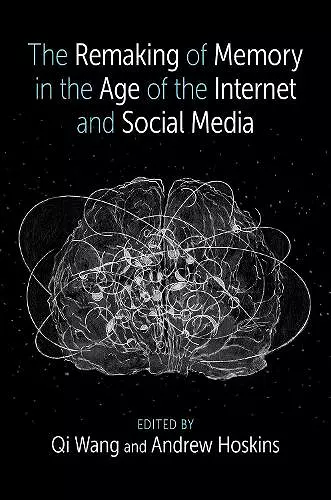The Remaking of Memory in the Age of the Internet and Social Media
Qi Wang editor Andrew Hoskins editor
Format:Hardback
Publisher:Oxford University Press Inc
Published:3rd Feb '25
Currently unavailable, and unfortunately no date known when it will be back

It has long been believed that individual human memory has been strengthened by the storage, representational, reproductive, and connective capacities of technologies and media. However, such views of how memory works are being challenged amidst today's digital maelstrom. In particular, the Internet, and social media platforms, have profoundly transformed the ways individuals receive, store, share, and lose information. Memory has become more externalized, dialogical, and transactive, yet at the same time, unwieldy, opaque, and inaccessible. In The Remaking of Memory in the Age of the Internet and Social Media, Qi Wang and Andrew Hoskins have assembled scholars from cognitive psychology, philosophy, neuroscience, and media and communication studies to synthesize emerging social and cognitive science research on the impact of the Internet and social media on remembering and forgetting. They probe whether human memory is being threatened by a shift from a healthy reliance to a dependency on digital media and technologies. The book illuminates theoretical and empirical research which shows the consequences of human entanglements with the Internet and social media for memory representation, expression, and socialization in individuals and the implications for the family, community, and society. Gathering the leading international scholars of Memory Studies together, this volume offers a new interdisciplinary agenda of inquiry into the digital remaking of individual, collective, and cultural memory.
Do the internet and social media enhance or obliterate human memory? Is memory even the same thing as it has been in the past? Should we be optimistic or pessimistic about prospects for the future? How do the new media affect our personal memories and our very identity? These are just some of the fundamental questions addressed in this volume. Starting with a fascinating dialogue between the editors * two of the world's leaders in memory studies, the volume presents a landmark discussion that promises to have a major impact for years to come.James V. Wertsch, David R. Francis Distinguished Professor of Anthropology, Washington University in St. Louis *
Over the past 25 years, social media and the internet have profoundly shaped the way memories are produced, recycled, archived, and retrieved. Wang & Hoskins' edited volume The Remaking of Memory in the Age of the Internet and Social Media addresses several 'burning' questions about what digital media 'do' to our personal and collective memories. A must-read for media scholars and, due to the interdisciplinarity of this team effort, a primer for all academics from the humanities, social sciences, and neurosciences. * José van Dijck, Professor of Media and Digital Society, Utrecht University (NL) *
Questions regarding the nature of memory in the age of social media and the Internet have come to the forefront in several disciplines. This exciting interdisciplinary collection brings together leading experts who address these questions and set an agenda for future research. I highly recommend this essential volume to anyone interested in what memory is and where it is headed. * Daniel L. Schacter, William R. Kenan, Jr. Professor of Psychology, Harvard University, and author of The Seven Sins of Memory *
This book addresses how digital media have transformed production, recycling, archiving, and retrieval of memories over the past 25 years. Taking the perspective of comparing long-held knowledge and beliefs about memory, Wang and Hoskins assembled noted researchers in memory and neuroscience to examine how that knowledge holds true in the world of online searches and social media. The book explores significant questions about the impact of the internet on both personal and collective memories. It promises to have a lasting influence on the field and to open new avenues of understanding the interaction between human memory and internet 'memory'. * Choice *
ISBN: 9780197661260
Dimensions: 238mm x 170mm x 28mm
Weight: 640g
352 pages